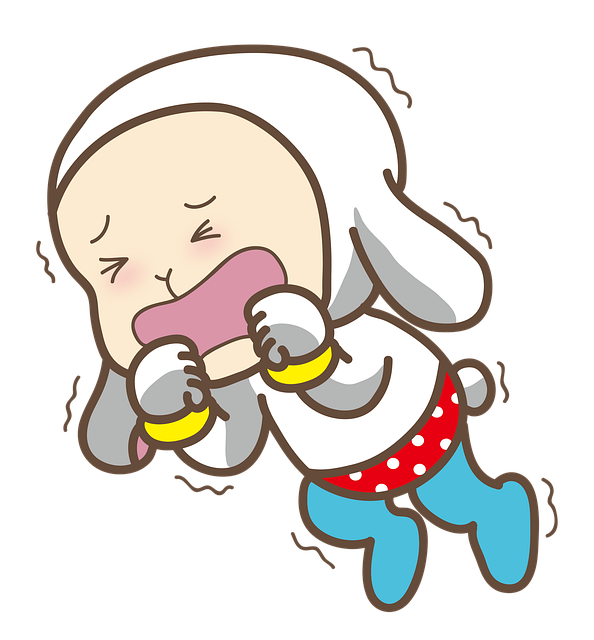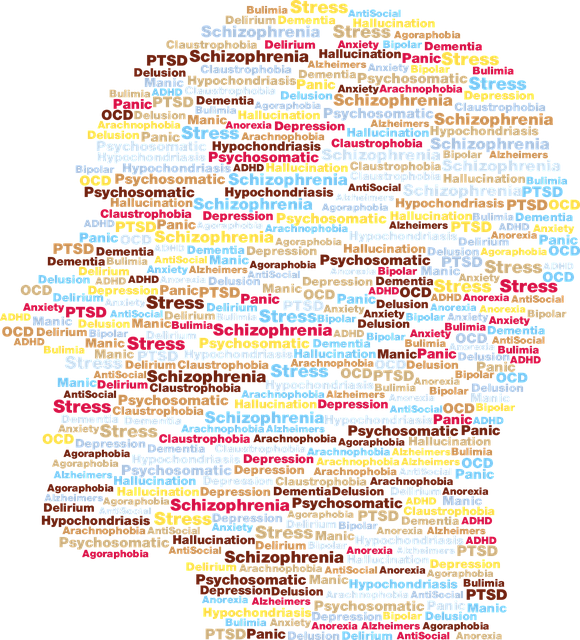Anxiety disorders, affecting millions globally, involve excessive worry or fear impacting daily life. Early recognition of signs like increased heart rate and insomnia is key for initiating effective anxiety treatment. Accessible approaches, such as therapy (CBT), medication (SSRIs), or combinations, can manage symptoms, improving quality of life. Lifestyle changes, stress management, CBT, relaxation techniques, alternative therapies, and social support are vital components of anxiety treatment.
Anxiety disorders affect millions, impacting daily life and overall well-being. Understanding these conditions and their triggers is key to effective anxiety treatment. This article delves into various aspects of managing anxiety, from lifestyle changes and cognitive behavioral therapy (CBT) to relaxation techniques and alternative therapies. By exploring these strategies, you’ll gain insights into creating a holistic approach to overcoming anxiety and improving your mental health. Discover practical steps towards lasting anxiety relief.
Understanding Anxiety Disorders and Their Impact

Anxiety disorders are a common mental health challenge, affecting millions worldwide. They encompass various conditions, such as generalized anxiety disorder, panic attacks, and social phobias, characterized by excessive and persistent worry or fear. Understanding these disorders is crucial in the quest for effective anxiety treatment. The impact of anxiety can be profound, interfering with daily life, work, and relationships. Individuals may experience physical symptoms like increased heart rate, insomnia, and fatigue, along with intellectual and emotional distress. Recognizing these signs early is essential to initiate appropriate anxiety treatment.
The pervasiveness of anxiety disorders highlights the need for accessible and effective treatments. Therapy, medication, or a combination of both are often recommended as part of a comprehensive anxiety treatment plan. Cognitive-behavioural therapy (CBT), for instance, helps individuals identify and change negative thought patterns contributing to anxiety. Medications like selective serotonin reuptake inhibitors (SSRIs) can also be prescribed to reduce symptoms. By implementing these strategies, those affected can learn to manage their condition, leading to improved quality of life and overall well-being.
Common Causes and Triggers of Anxiety

Anxiety, a natural response to stress, can be triggered by various factors, making it a complex emotion to understand and manage. Common causes include genetic predisposition, where individuals may be genetically inclined towards heightened anxiety levels. Environmental influences play a significant role too; stressful life events like financial troubles, work pressure, or traumatic experiences can all contribute to the development of anxiety disorders.
Certain situations and triggers are specific to each person, but some general categories include social interactions, public speaking, and exam-related pressures. Even health concerns or physical discomforts can be anxiety triggers. Identifying these personal triggers is a crucial step in any anxiety treatment plan, as it allows individuals to gain control over their emotions and develop strategies to manage them effectively.
Lifestyle Changes for Effective Anxiety Treatment

Making lifestyle changes can be a powerful tool in your journey towards effective anxiety treatment. Regular physical activity, for instance, has been proven to reduce symptoms of anxiety by releasing endorphins, which act as natural stress relievers. A balanced diet rich in nutrients supports overall mental health, giving your body the tools it needs to combat anxiety effectively. Additionally, prioritizing quality sleep is essential; fatigue can worsen anxiety, so establishing a consistent sleep routine can significantly impact your well-being.
Stress management techniques like mindfulness meditation and deep breathing exercises are simple yet effective ways to calm the mind and body. Incorporating these practices into your daily routine can help you gain control over anxious thoughts and reduce their intensity. Moreover, reducing exposure to stressors whenever possible and practicing good time management to avoid feeling overwhelmed are valuable strategies for managing anxiety in the long term.
Cognitive Behavioral Therapy (CBT): A Powerful Tool

Cognitive Behavioral Therapy (CBT) is a highly effective and evidence-based approach to anxiety treatment. By focusing on identifying and challenging negative thought patterns, CBT empowers individuals to manage their anxious responses more effectively. This therapy encourages patients to recognize that their thoughts, feelings, and behaviors are interconnected, and by modifying these thought processes, they can significantly reduce symptoms of anxiety.
Through structured sessions with a trained therapist, CBT provides practical tools to navigate triggers, face fears, and replace negative beliefs with realistic, positive affirmations. The goal is to teach individuals how to recognize and change distorted thinking, leading to improved emotional well-being. Numerous studies have proven CBT’s effectiveness in treating various forms of anxiety disorders, making it a powerful resource for anyone seeking long-term relief from anxiety-related distress.
Relaxation Techniques to Calm the Mind and Body

Anxiety reduction techniques play a pivotal role in managing and alleviating symptoms of this common condition. One of the most effective tools in an anxiety treatment arsenal is relaxation. By employing specific techniques, individuals can calm both their minds and bodies, breaking the cycle of heightened stress responses.
Deep breathing exercises, for instance, are a straightforward yet powerful method to reduce anxiety. Focusing on slow, controlled inhales and exhales activates the body’s parasympathetic nervous system, promoting relaxation. Similarly, progressive muscle relaxation involves tensing and then releasing different muscle groups, reducing physical tension and fostering a sense of calm. Additionally, mindfulness meditation encourages individuals to stay present, observing thoughts and feelings without judgment, which can help quiet the mind and reduce anxious ruminations. These relaxation techniques are accessible tools that anyone can use to manage their anxiety symptoms effectively.
Exploring Alternative Therapies and Support Systems

Anxiety treatment extends beyond traditional therapies. Exploring alternative options can offer unique and effective solutions. Techniques like mindfulness meditation, yoga, and deep breathing exercises have shown promise in reducing anxiety symptoms. These practices promote relaxation, enhance self-awareness, and encourage a calmer mindset. Many individuals find solace in creative outlets such as art therapy or writing, which provide an outlet for expressing emotions and gaining perspective.
Additionally, building a robust support system is invaluable. Connecting with friends, family, or support groups offers a sense of belonging and understanding. Sharing experiences and strategies within these circles can foster resilience and provide alternative coping mechanisms. The power of social connection in anxiety treatment cannot be understated, as it creates a network of support tailored to individual needs.
